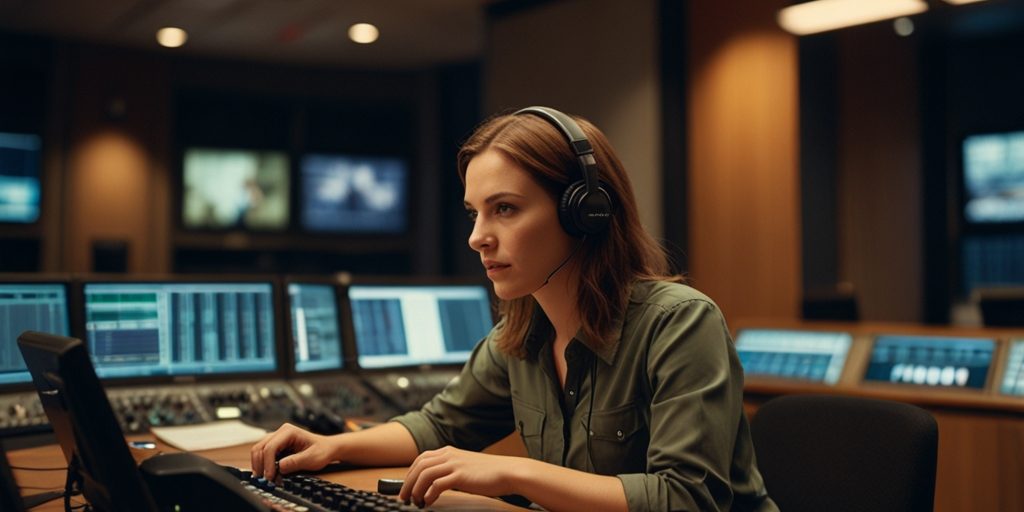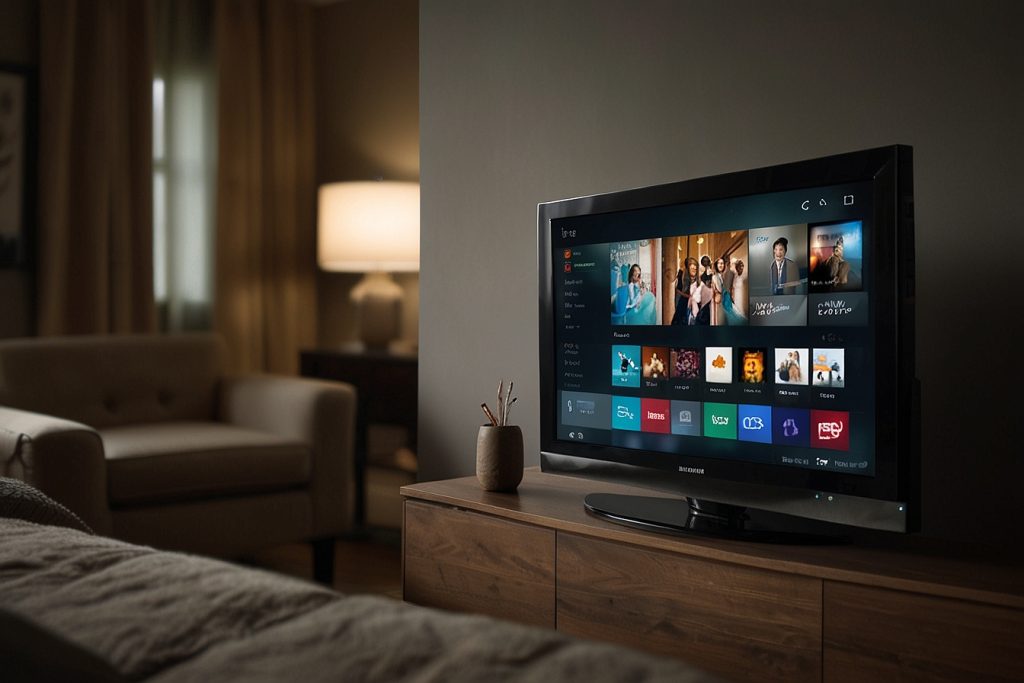
NEWS
Local TV is dead, long live the local TV!
In the past two years have happened two facts that affect the emissions of television as we know them; I mean to DTT or digital terrestrial television. That is, the emission of the signal through a limited licenses (ten multiplex in the case of Catalonia) and by means of hertzian waves.
The first fact was the speech that made Tim Davie, director general of the BBC, December 7, 2022. The day on which celebrated its 100 years and 23 days since the first issuance of the chain. In the speech, Tim Davie reflected on the role of the BBC in the society of the United Kingdom and its funding through a levy paid by the citizens every time they buy a TV receiver. He claimed the role tractor BBC in the audiovisual industry, and as a catalyst for growth, with more than 50,000 jobs and 14,000 providers.
Despite this assessment, Tim Davie also notes that times have changed and that consumption habits are not the same. The Internet and, more specifically, social media has shaken up the board and look to the future. For this reason, it is necessary to transforming the BBC and looking ahead to 2030, announcing that over the next decade it will be necessary to move completely to digital and shut down the emissions by TDT.
The other fact that has gone unnoticed for many people, is the World Radiocommunication Conference 2023 in Dubai. This conference was to validate the third digital dividend, by remapping the frequency of the DVB-t mobile phone to 2030. That is to say, the disappearance of TDT in six years. Fortunately for all of us, the pressure of lobbies did slow down the decision, which was postponed to the next conference, which will be in 2031. But you do not need to be very smart to see that communication networks require more allocation of frequencies in a park of devices continues to grow, now including the boom of IoT (internet of things).
As you can see, we have been ready to stay without DTT and, surely, with the ignorance of the majority of professionals that this final was decided in December 2023. We can breathe easy for a few years, but tough times are ahead and it is very likely happening during the next decade.
And what scenario will the television of proximity in 2031 if you take this decision? Basically, they will (or have already lost) one of the competitive advantages that have currently: the little competition that are within the radio spectrum. Someone will say that is not true, that there is a lot of competition and that is fierce. So imagine how it can be a battle in an environment not controlled by licenses (such as DTT). Is that in the business world is known as an ocean red: full of sharks to fight for the same prey and becoming the pieces to each other. Very descriptive.
"Digital transformation is not going to apply technology, but to change and adapt the processes to reinvent the business model. From here the technology will do its magic."
This alternative to the emissions of TDT is the digital world, or the world online, as you wish to call it. Deliver content over the internet. A news portal, a TV a la carta, a OTT, and mainly social networks, or other innovations like the wizards of type voice Alexa. But this environment is unknown territory for televisions. Never have come at all because it means duplicating a lot of work and, therefore, increase the costs. The windows distribution is multiplied and the processes are very manual. Especially if you want to maintain minimum standards of quality and thoroughness information.
On the other hand, this territory digital is full of media natives who come from other types of enterprises, such as local magazines or simply one-man business that is dedicated to publish content. These media digital natives are not regulated, are not required to verify the information, we do not care about the quality of the pictures or videos that distributed and, therefore, have a very big advantage in front of the television, constrained by regulations and codes of conduct.
Finally, we are witnessing the boom of the so-called channel FAST, which are a version of the thematic channels, financed by advertising, which is emitted by the internet grouped together in platforms, such as that incorporate tvs Samsung. In this particular case, a user can find over 130 channels added to your list of DTT channels that compete directly with television stations traditional. It is a clear example of the fact that the tv has stopped being a device to see the linear channels and has become a content aggregator that arrive in a number of ways, such as the airwaves or the internet connection.

Therefore, the traditional media can not wait seven, eight, or ten years to cope with these new players digital natives who are already competing in the ground which until now was the monopoly of television. It is urgent that local television is positioned before the citizens, and many are already starting to do so. We could talk about the digital transformation of the TV in close proximity. Not only by the change of the technology, that too, but for the redefinition of the internal processesnecessary to reduce costs and get to compete with players who have been born already digital. With business models that are very different and that, in the case of the proximity, they also have a link with the citizens. For example, the journals of the bakeries that, through the social networks, they begin to have a great complicity with the people of the town or city
Initiatives such as The Xarxa+ (the OTT driven by the Xarxa Audiovisual Local add contents of 54 televisions and 110 radios and makes them available to the citizens through a platform to be consumed via the internet) are key to this transformation. But it is also necessary that each one of the media between them to compete elbow to elbow with their competitors digital in your town or city. The good news is that they have the content and credibility. The increase in calls fake news and its detection by the consumer opens an important window of opportunity to the media who are committed to the rigor and good journalism. The bad news is that you need to change the way of doing things and adapt, as announced by the BBC two years ago, in the new world that we already have here.
To conclude, as I have begun, these are the options that Tim Davie brand as targets for the BBC:
- Move with urgency to the internet.
- Quickly transform the BBC to be in a leadership role in the digital market.
- Invest proactively in the brand BBC as a world leader.
- To advance more quickly in the regulation to ensure the success of this movement towards the digital.
Change BBC for the name of your tv, and ‘global leader’ by ‘local leader’ and you will have a base to draw your strategy for the next five years. And remember, digital transformation is not going to apply technology, but to change and adapt the processes to reinvent the business model. From here the technology will do its magic.
Carles RamsCEO and co-Founder of Ebantic
LATEST ENTRIES
- New audiovisual HUB that is transforming Badalona.
- ProArchive remains a key player at ISE 2026
- ProArchive: International premiere at ISE 2026
- Ebantic at Museum Connections Paris 2026
- Ebantic at 2026
- Ebantic Winter Day: ventas con propósito
- ICOM Dubai 2025: a turning point
- Inspiration from the Guggenheim Bilbao
- IBC 2025: Ideas, Connections and the Future
- Podcast de ebantic «Líders Digitals»
FILE
CATEGORIES
Drive Your Innovation with Our Services
At ebantic we help our customers to take strategic decisions in real-time.
